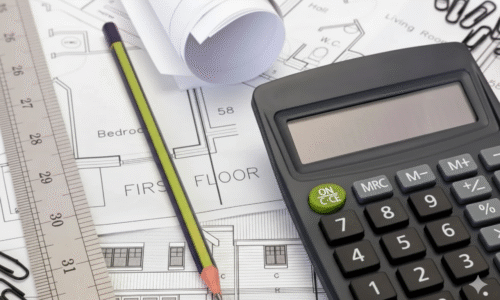Civil construction projects, such as roads, bridges, drainage systems, and car parks, are critical to the development and maintenance of modern infrastructure. Accurate cost estimation is the foundation of these projects, as it helps stakeholders manage resources efficiently, stay within budget, and avoid delays. Civil cost estimation is a specialized field that requires the expertise of skilled estimators who can evaluate project plans, materials, labor, and other essential elements.
In this blog, we’ll explore how civil cost estimation services are vital to the success of infrastructure projects, the key components involved in the estimating process, and how leveraging professional services can lead to improved project outcomes.
What is Civil Cost Estimation?
Civil cost estimation involves forecasting the financial resources needed to complete large-scale infrastructure projects, such as highways, bridges, earthworks, and public utilities. Estimators consider several factors, including labor costs, materials, equipment, and project timelines, to provide a detailed breakdown of expenses. Accurate estimates ensure that project owners and contractors have a clear financial roadmap for every phase of the project.
This process helps contractors determine whether the project is financially feasible and enables stakeholders to secure the necessary funds and resources. A precise estimate can also highlight potential risks and challenges, allowing for better planning and risk management.
Key Elements of Civil Cost Estimation:
Labor Costs: Accounting for skilled and unskilled labor required for construction.
Material Costs: Estimating the quantity and cost of materials, including concrete, steel, and asphalt.
Equipment Costs: Factoring in the cost of heavy machinery and specialized tools.
Overhead Costs: Including permits, insurance, and other indirect costs.

The Importance of Accurate Civil Cost Estimation
Accurate cost estimation plays a critical role in the success of infrastructure projects. Over or underestimating project costs can lead to severe financial issues, delays, or compromised project quality. When project owners and contractors rely on an accurate estimate, they can make informed decisions about the project’s scope and viability.
In the civil construction industry, even a minor discrepancy in estimating costs can have a significant ripple effect. For instance, an underestimation of materials could result in project delays and increased expenses as contractors scramble to source additional resources. On the other hand, overestimation can lead to unnecessarily inflated budgets, making the project less competitive.
How Accurate Estimates Benefit Projects:
Budget Control: Ensures that the project stays within its allocated budget, avoiding unnecessary cost overruns.
Resource Allocation: Helps manage materials, labor, and equipment more effectively.
Risk Management: Identifies potential financial risks early, allowing for better contingency planning.
Improved Client Trust: A precise estimate builds credibility and fosters trust with clients and stakeholders.
The Civil Cost Estimation Process
The process of civil cost estimation involves several steps, each contributing to the accuracy and reliability of the final estimate. Below is a breakdown of the key stages involved:
Step 1: Reviewing Project Plans and Specifications
The first step in civil cost estimation is a thorough review of the project’s blueprints, drawings, and specifications. This helps estimators understand the project’s scope, design, and technical requirements. Clear communication between the project owner, architects, and engineers is crucial at this stage to ensure all relevant details are considered.
Step 2: Quantity Takeoff
A quantity takeoff is performed to measure the exact amount of materials required for the project. This can include everything from concrete and steel to drainage systems and asphalt for roads. Accurate quantity takeoffs are vital to ensuring that material costs are correctly estimated.
Step 3: Labor and Equipment Costs
Estimators must calculate the labor required to complete each phase of the project, considering local wage rates, the number of workers, and the duration of the work. Equipment costs are also factored in, including the rental or purchase of heavy machinery like bulldozers, excavators, and cranes.
Step 4: Estimating Overhead and Indirect Costs
Indirect costs, such as permits, licenses, insurance, and utility expenses, must be included in the estimate. These overhead costs are often overlooked but are essential for obtaining an accurate overall project cost.
Step 5: Contingency Planning
No project runs entirely according to plan, so a contingency budget is built into the estimate to cover unforeseen costs, such as weather delays, changes in scope, or material price fluctuations. This safety net ensures that the project can continue even if unexpected challenges arise.

Civil Cost Estimation for Specific Infrastructure Projects
Civil construction projects vary in complexity and scope, from small drainage systems to massive highway developments. Below are examples of key types of infrastructure projects and the cost estimation considerations unique to each:
Roads and Highways
Road construction requires accurate estimation of materials like asphalt, concrete, and steel for bridges. Estimators must consider traffic management plans, road safety measures, and environmental impacts, all of which can affect costs.
Bridges
Bridge construction projects involve specialized materials like reinforced steel and concrete. Estimators need to factor in the load-bearing capacity of the bridge, environmental conditions, and long-term maintenance costs.
Earthworks
Earthworks projects, such as excavation and land grading, require careful estimation of cut and fill quantities. The movement of soil and rock can be one of the most expensive elements of civil construction, so estimators must account for equipment costs, fuel consumption, and labor.
Drainage and Utilities
Installing drainage systems requires accurate estimates for materials like piping and excavation. Ensuring proper water flow and preventing flooding are critical to the success of these systems, and the complexity of the terrain can significantly impact the estimate.
Benefits of Professional Civil Cost Estimation Services
Hiring a professional civil cost estimator can make a significant difference in the overall success of a project. Experienced estimators provide valuable insights and reduce the risk of costly errors, offering a high level of expertise in various aspects of civil construction.
Key Benefits of Professional Services:
Accuracy: Professionals use advanced software tools like Bluebeam and Kubla to ensure precise estimates.
Efficiency: Streamlined processes mean that estimates are delivered quickly and efficiently.
Cost Savings: By identifying potential cost-saving opportunities early, professional estimators help reduce overall project costs.
Risk Reduction: Professionals provide contingency planning and risk assessments to prevent budget overruns.
How Measure Manage’s Civil Cost Estimation Services Can Help
Measure Manage provides expert civil cost estimation services, specializing in projects such as roads, bridges, earthworks, drainage, and large-scale infrastructure developments. Our team uses the latest tools and technology to deliver accurate, reliable estimates that help contractors and project owners succeed.
Our services include:
Detailed Quantity Takeoffs for precise material estimates.
Comprehensive Labor and Equipment Forecasting for efficient resource allocation.
Contingency Planning to ensure your project stays on track, even when faced with challenges.
Expert Project Consultation to guide you through the entire estimating process.
The Key to Successful Infrastructure Projects
Accurate civil cost estimation is the foundation of any successful infrastructure project. By understanding the scope, materials, labor, and risks involved, estimators help ensure projects are delivered on time and within budget. Whether you’re building a new highway, bridge, or drainage system, professional civil cost estimation services can make all the difference in delivering high-quality results.
Contact Measure Manage today to learn how our expert civil cost estimation services can help bring your next infrastructure project to life.




